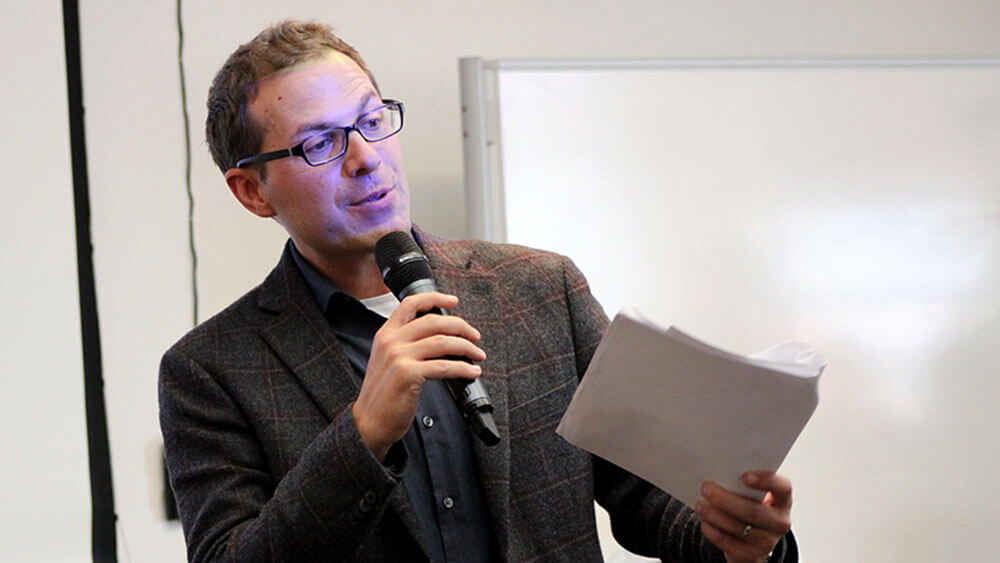
David Ryan Polgar speaks at the first All Tech is Human summit, which convened people from a variety of backgrounds to discuss ethical tech development.
As we were putting the May Convene issue to bed, the media was circulating news that Amazon employees are listening in on interactions customers have with Alexa, the digital assistant behind the company’s Echo speakers. Amazon employs a global team of thousands to transcribe the voice commands captured after the wake word is detected — which activates Alexa to respond — and feed them back into the software. The humans aim to help eliminate gaps in Alexa’s understanding of speech to improve her responses.

Michelle Russell
An Amazon spokesperson assured Bloomberg that its workers adhere to strict privacy standards, and the story didn’t seem to spark a public outcry — it didn’t even prompt me to disable the use of voice recordings on our Alexa at home. But putting aside the creepy factor that someone halfway around the world may be listening to my music commands, I found one part of the story slipped straight into the kind of murky territory that tech ethicist David Ryan Polgar spends his career exploring.
In the report, two Amazon workers claimed that they once listened to a recording of what sounded like a sexual assault, but were told it wasn’t Amazon’s job to interfere when they sought advice on what to do. And while we don’t expect — or want — a tech company policing society via eavesdropping, it’s not so easy to draw hard lines when workers overhear troubling or potentially criminal recordings. What ethical considerations should be weighed?
Polgar regularly asks just these kinds of “deeper questions.” “Technology isn’t technology,” he told me when I interviewed him for this month’s Data column. “Technology is society.” Which is why Polgar approaches everything tech-related from a multi-disciplinary approach, inviting educators, attorneys, philosophers, and psychologists to be part of the conversation.
Our society hasn’t caught up with tech, Polgar said. Marc Rotenberg, president and executive director of the Electronic Privacy Information Center (EPIC), reinforced that in a USA Today interview, saying that while telephone companies have been allowed to listen to customers’ calls so they can improve service, it was never imagined, he said, that they would “have a commercial interest in the contents of a phone call. The world is very different with Amazon because that company is very interested in everything its customers do.”
To bring Polgar’s insights about this new world closer to home, I asked him — especially as someone who organizes conferences himself — to zero in on what event planners need to consider when it comes to event tech.
On a related note, our reliance on screens to stay connected to others is also thought to be a contributing factor to the growing issue of loneliness. Deputy Editor Barbara Palmer takes a look at that in our May cover story and shares how face-to-face events can provide an antidote.
Making a Difference
You may notice that we’ve changed the name of our Giving Back series to “Social Impact.” We think it better conveys the contribution events make to improve society — not only in their CSR and sustainability efforts, but in how they get the important work their stakeholders do in their everyday jobs out into the world.
This month’s story is a great example: a student competition at a transportation conference for solutions to make our streets safer for pedestrians and cyclists.
